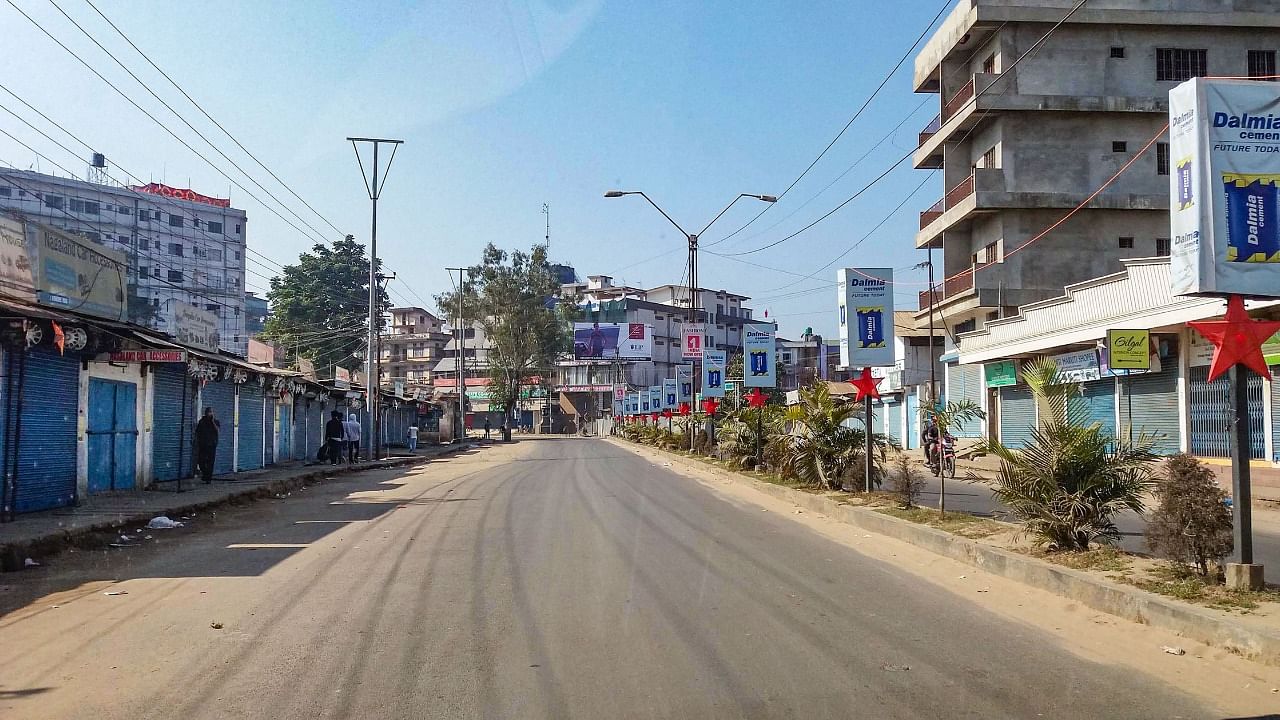
The Nagaland government on Friday extended the total lockdown in the state till June 11.
The lockdown, first imposed on May 14 for seven days, was earlier extended till May 31.
The decision to further extend the lockdown till June 11 was taken by the High Powered Committee (HPC) on Covid-19, headed by Chief Minister Neiphiu Rio.
In the meeting, the Health and Family Welfare Department made a presentation on the status of the Covid-19 case, beds and oxygen availability and the trend of hospitalisations, among others, said minister Neiba Kronu.
In view of the number of Covid-19 cases in the state and the feedback given by the District Task Forces (DTFs), the decision to extend the lockdown till June 11 was taken, he said.
The state on Friday reported 192 new cases, increasing the Covid-19 tally to 21,215. The highest number of cases were detected in Dimapur at 61, followed by Tuensang (47) and Kohima (26).
Five more people died in the state, raising the toll to 343. There are 4,990 active cases in Nagaland at present, while 15,258 patients have recovered.
The state government is satisfied that the existing lockdown measures are required to continue in order to break the chain and prevent the spread of Covid-19, said the official notification issued by Chief Secretary J Alam on the lockdown extension.
The existing guidelines would continue to be in place -- all activities and movement of people will remain suspended, except essential services, agriculture and construction works.
Shops dealing in essential commodities would be allowed to remain open from 6 am to 12 noon daily and only one person per family has to do the shopping, as per the guidelines.
Advisor Mmhonlumo Kikon said the committee has asked the DTFs to submit a detailed report on the welfare of the unorganised sectors, including taxi and bus drivers, and other daily wage earners.
Minister Kronu said it was also decided that over and above the 15 percent of Local Area Development Programme (LADP) fund earmarked for common pool activities, an additional 10 percent will be kept aside for Covid-19 related expenditure.
The Planning Department will issue separate guidelines on this, he said.
To check the spread of the virus in rural areas, a system of community surveillance has been put in place, while the DTFs have been asked to take steps to strengthen the Village Task Forces and Village Disaster Management Authorities, he said.
They shall remain operational under the supervision of the respective DTFs for effective management of Covid-19 in the rural areas, he said.
All village and ward/colony authorities would be mobilised to organise suitable slots for vaccination in order to streamline the ongoing vaccination drive, the minister said.